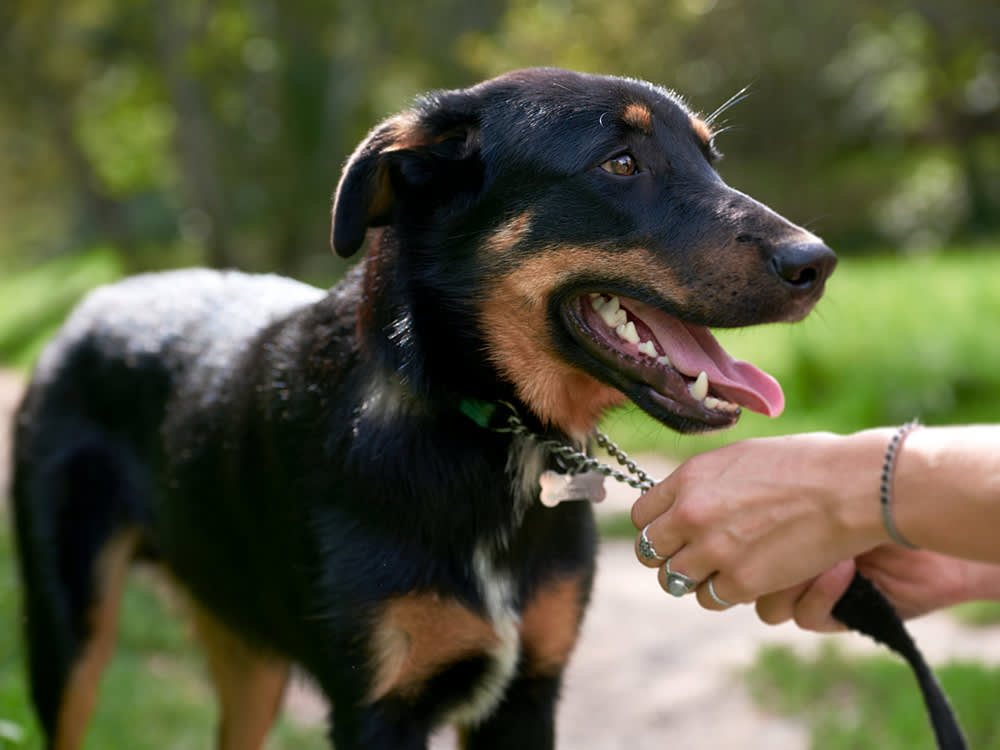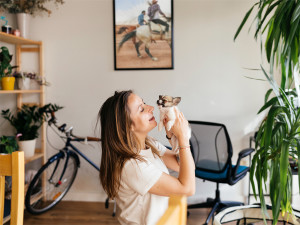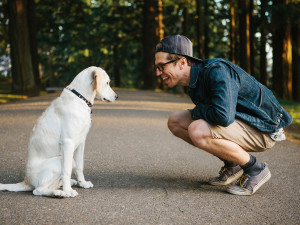The Pros and Cons of Getting Your Dog Licensed
Spoiler: there are no cons.
There are a million fun things associated with welcoming a new dog into your family, from going on a shopping spree for new puppy products to picking out a cute name (and IG handle, natch) to getting schooled in the best way ever: puppy class. Getting a dog license is...not on the list. However, just because something isn’t fun doesn’t mean it isn’t important. And why, exactly, is it important? Glad you asked. Here are five reasons why getting your dog licensed is a necessary task for new pup parents.
1. It’s the Law
Most jurisdictions require dogs to be licensed within a few months of bringing them home, including New York Cityopens in new tab and Los Angelesopens in new tab. Regulations vary by state and are typically managed at the county or city level. Check with your local animal control agency for details on the forms, fees, and requirements (they usually offer an online form that takes five minutes to fill out). Now that the legal business is out of the way, let’s focus on all the good things that come from getting your dog licensed.
2. It Saves You Money
Sort of. Getting a license costs money. But not getting a license, getting caught, and receiving a fine costs even more. So it’s a pay now or pay later situation, with the former being the cheaper option.
3. It Helps if Your Dog Goes Missing
A dog escaping from a house or yard and getting lost is pretty much every pet parent’s worst nightmare. A dog license has a unique ID number that’s tied to their owner. So if a dog is found wandering the streets, the license number can be used to identify the owner and facilitate a happy reunion. Also, lost dogs that end up in shelters are at risk of being euthanized if their people don't show up to claim them. Dogs that are licensed are typically allowed a longer stay at the shelter than unlicensed dogs.
How much do you spend on your pet per year?
4. It Proves Your Dog Has Been Vaccinated
If you came across an unknown dog, would you want to get near them if you thought they might be rabid? If you’ve seen Cujo, the answer is no. When you apply for a dog license, you have to show proof that your pup has been vaccinated against rabies. So a license is a visual indicator that your dog is rabies-free. And because licenses have to be renewed continually along with rabies vaccinations, it’s also a sign that your dog sees a vet regularly. That’s more peace of mind for any good samaritan who is trying to help your lost pup.
5. It Even Helps Stray Pets Find Homes
Fees from dog licenses help local shelters and animal control organizationopens in new tab s provide food and services to stray pets. That means more pets get the care and attention they deserve. Win.





